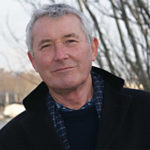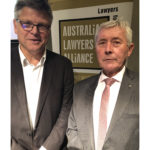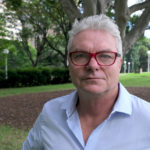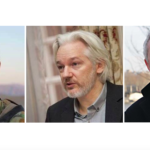Collaery Challenges Secrecy of His Whistleblower Trial
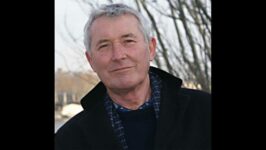
Australian barrister Bernard Collaery continues to challenge his unnecessary prosecution, which is proceeding on the whim of the Morrison government.
This time, the former ACT attorney general has been railing against the secrecy provisions the nation’s ex-chief lawmaker Christian Porter has cloaked his trial in.
Collaery appeared before the ACT Court of Appeal for a two day hearing commencing on 17 May to dispute a never before used National Security Information (NSI) order that’s being applied to his case, which requires that large sections of it take place behind closed doors.
The lawyer has been charged under section 39 of the Intelligence Services Act 2001 (Cth) for allegedly assisting former ASIS intelligence officer Witness K disclose information regarding the 2004 Howard government bugging of the East Timorese government offices to that nation and the media.
As Human Rights Law Centre senior lawyer Kieran Pender has summed up the dilemma, the government wants to maintain secrecy as it doesn’t want to publicly admit the Coalition conducted the illegal spying operation, but it also has to concede it did in order to see Collaery convicted.
Hiding behind closed doors
The order being applied to keep most of Collaery’s trial concealed is contained under section 26 of the National Security Information (Criminal and Civil Proceedings) Act 2004 (Cth) (the Act).
The AG can make this order if they’re concerned information prejudicing national security may be disclosed during proceedings.
Officially known as a criminal non-disclosure certificate, the order was applied twice by Porter over the year 2018-19, in relation to both Collaery and Witness K. While a second such order was applied in relation to proceedings against Collaery during 2019-20.
These are the first times the power has ever been exercised since the Howard-era laws came into effect.
Following the issuing of a non-disclosure certificate, the court must hold a hearing to deliberate upon whether and how the order should be applied, and in these circumstances, the “greatest weight” must be given to the attorney general’s concerns.
Section 29 of the Act lists those who may be present during closed court proceedings. This includes any judicial officers, court officials, the prosecutor, the defendant, the criminal defence lawyer, the AG and any witness.
If a jury is involved in the trial, it may not be present during closed proceedings.
Speaking truth to power
Whether Collaery’s appeal of the closed court stipulations is successful is yet to be seen.
But one thing is certain, the lawyer – whose practice has been ruined because of the prosecution – has certainly been defiant in his approach to being targeted for reprisal by Porter and the Coalition.
In March last year, Collaery published Oil Over Trouble Water: his account of our nation’s foreign affairs history in relation to East Timor. And while he couldn’t touch upon matters directly involved in his case, he certainly revealed some little known facts about Coalition government dealings.
In an interview following the book’s release, Collaery explained that he’s been charged with conspiracy to disclose information, as he was acting on behalf of Witness K, after the Inspector General of Intelligence and Security recommended his services as he was an ASIS-approved lawyer.
“I gave frank and fearless advice, and the response was I’ve been charged with conspiracy,” Collaery told Sydney Criminal Lawyers in March last year. “That probably means I’ve been conspiring with clients for 40 years. That’s what it amounts to.”
“As far as I am concerned, the charge against K means that it’s a crime to report a crime. Think about it. That’s Australia at present.”


